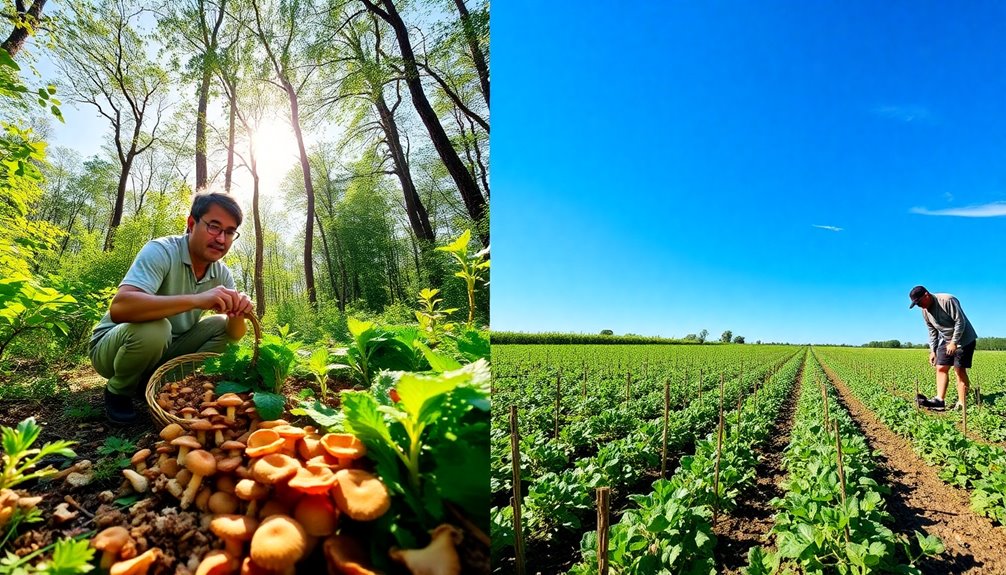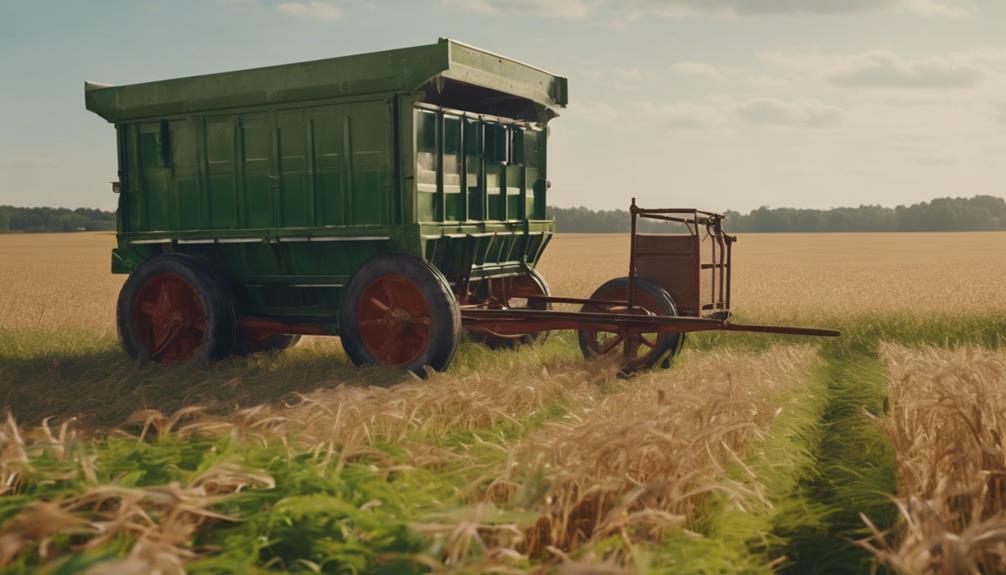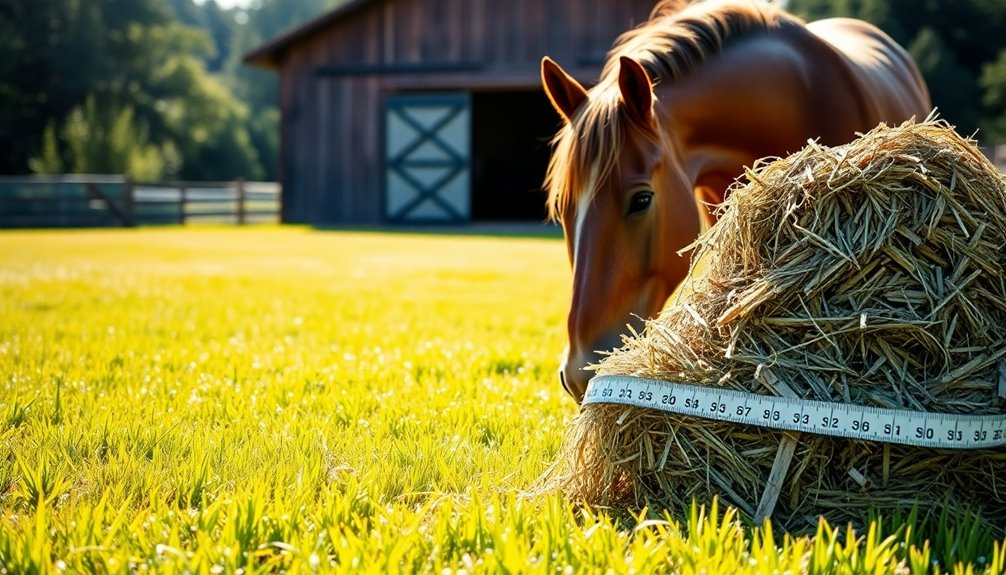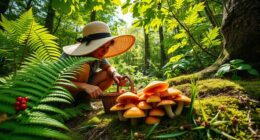When comparing foraging and farming, you'll see that foraging often supports better health, social equity, and environmental sustainability. Hunter-gatherers enjoyed diverse diets, leading to lower chronic disease rates, while farming introduced nutritional limitations and class distinctions. Plus, foragers spend less time gathering food, allowing more leisure for cultural pursuits. Farming can create vulnerabilities too, like reliance on single crops, which increases risks during environmental crises. As you explore this topic, you'll uncover even more insights on how foraging can challenge the conventional wisdom surrounding agricultural practices and possibly reshape modern lifestyles.
Key Takeaways
- Foraging promotes nutritional diversity and healthier diets, reducing chronic diseases compared to the limited food sources in early agricultural societies.
- Hunter-gatherers enjoyed more leisure time and higher life satisfaction, while farming often leads to longer labor hours and a monotonous lifestyle.
- Foraging supports environmental stewardship, biodiversity, and cultural identity, contrasting with the ecological vulnerabilities introduced by monoculture farming practices.
- Agricultural practices contribute to social disparities and gender inequality, which are less pronounced in egalitarian hunter-gatherer societies.
- The reliance on single crops in farming heightens risks during environmental crises, while foraging fosters resilience and adaptability in changing conditions.
Historical Perspectives on Foraging and Farming
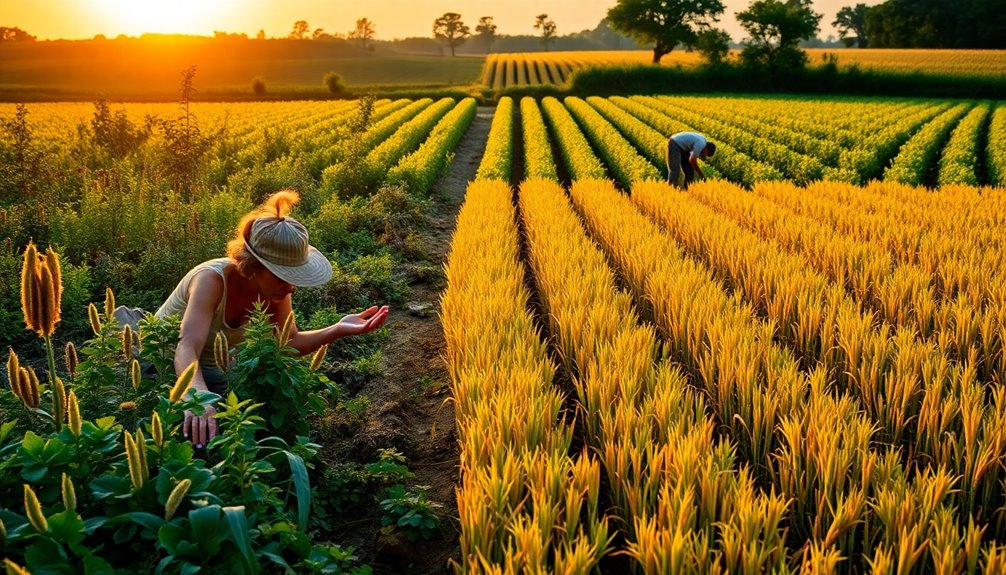
The shift from foraging to farming fundamentally altered human society. This change, known as the Agricultural Revolution, marked a pivotal moment in history, leading to permanent settlements and complex social structures.
While many communities embraced farming, others maintained foraging practices, illustrating that this alteration wasn't instantaneous. Some societies gradually adapted, blending both lifestyles to suit their needs.
Hunter-gatherers enjoyed a diverse and nutritionally balanced diet, which contributed to lower rates of chronic diseases. In contrast, early agricultural societies often faced malnutrition and health challenges due to a less varied diet.
As farming took root, social hierarchies emerged, creating pronounced class distinctions based on food surplus control. In hunter-gatherer societies, egalitarian structures prevailed, allowing for greater cooperation and resource sharing.
Historical examples, such as the Great Leap Forward, reveal vulnerabilities in farming communities. Exploitation and wealth accumulation among elites raised questions about the long-term benefits of agriculture compared to foraging.
It's crucial to examine these historical perspectives, as they provide valuable insights into how the change from foraging to farming has shaped human experience, social dynamics, and health outcomes over time.
Health Implications of Diet Choices
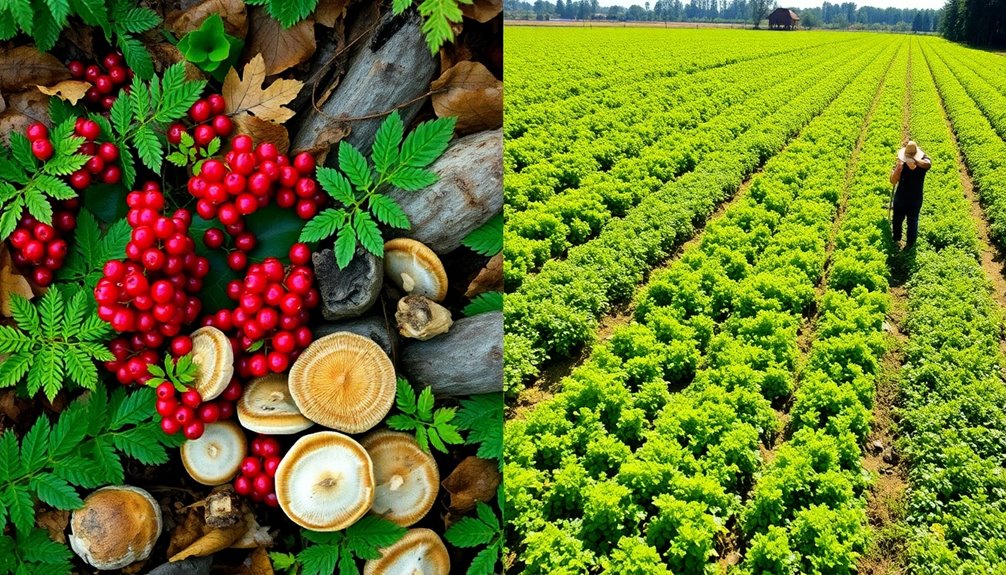
When comparing foraging to farming, you can see how nutritional diversity plays an essential role in health outcomes.
Hunter-gatherers enjoyed a wide variety of foods that helped keep chronic diseases at bay, while early farmers faced health issues due to a more limited diet. This contrast highlights the importance of dietary choices in shaping overall well-being. Additionally, foraged foods like honey varieties can provide unique health benefits that are often lacking in farmed produce. Furthermore, the foraging range of bee species influences the availability of diverse plant resources, enhancing the potential for nutritional variety in foraged diets. Historically, the consumption of seeds like chia seeds has demonstrated the benefits of including nutrient-rich foods in one's diet, promoting health and vitality. Foraged plants, such as Aloe Vera, are also known for their health-promoting properties, showcasing the advantages of diverse food sources. Including foods high in dietary fiber can support digestive health and overall well-being.
Nutritional Diversity Comparison
Nutritional diversity plays an essential role in our health, and examining the diets of hunter-gatherers versus early agricultural societies reveals considerable differences.
Hunter-gatherers thrived on a varied diet rich in wild plants and animals, which contributed to lower risks of chronic diseases like diabetes and heart issues. In contrast, early agricultural societies often relied on fewer food sources, leading to malnutrition and health complications.
Research shows that skeletal remains of hunter-gatherers show no signs of modern diseases, while early farmers exhibited dental problems and weaker bones due to their limited diet. For example, studies conducted by Jared Diamond reveal that Bushmen maintained an average caloric intake of 2,140 calories per month, including 93 grams of protein daily, underscoring the nutritional adequacy of foraging.
Furthermore, the close proximity to domesticated animals in agricultural settings increased exposure to diseases, further emphasizing the health risks associated with farming.
The reliance on staple crops has been linked to nutrient deficiencies, while the diverse foraging diets supported better overall health outcomes. Additionally, incorporating omega-3 sources like chia seeds into modern diets can help replicate the nutritional benefits seen in hunter-gatherer societies.
Ultimately, the nutritional diversity of your diet can greatly impact your health.
Chronic Disease Prevalence
- Hunter-gatherers showed no signs of modern diseases in skeletal remains.
- Agricultural diets often led to malnutrition due to a limited variety of staple crops.
- Increased chronic disease prevalence, including dental issues and weaker bones, was noted among early farmers.
- Nutritional advantages of foraging led to healthier lifestyles, as highlighted by Jared Diamond's findings. Foragers often enjoyed a greater variety of foods, contributing to higher vibrational energy levels and overall well-being.
- Individuals with Borderline Personality Disorder often experience difficulties in maintaining a stable self-image, which can be exacerbated by poor dietary choices.
This stark contrast between foraging and farming illustrates the health implications of diet choices. While foragers had a balanced nutritional intake, early farmers faced health challenges that still resonate today.
Understanding these differences can help you make more informed dietary choices, potentially steering clear of chronic diseases that have become prevalent in modern society.
Social Structures and Inequality
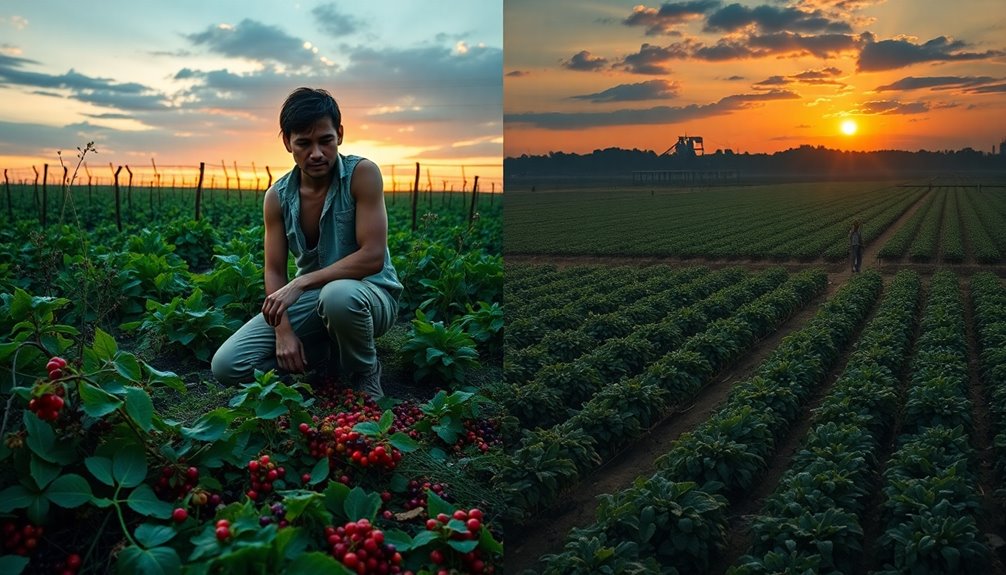
The shift from foraging to farming dramatically reshaped social structures and introduced significant inequalities. In hunter-gatherer societies, you'd find egalitarian structures with minimal social hierarchies. Everyone shared resources, and poverty, as a concept, didn't exist.
However, agriculture changed that, leading to pronounced class distinctions based on control over food surpluses. Research by Kevin Reilly highlights how this change marked the emergence of poverty as a social status.
Moreover, you'd notice an increase in gender inequality. Men typically took on superior roles, while women faced oppression compared to the more balanced gender dynamics within foraging communities.
Historical events, like the Great Leap Forward, illustrate the vulnerabilities of agricultural societies, where exploitation and wealth accumulation among elites worsened social inequalities.
Today, the lingering effects of these early agricultural practices continue to shape our modern social structures. The disparities you observe in contemporary society can often be traced back to the change from foraging to farming, revealing how deeply rooted these inequalities are.
Understanding this history is essential if you want to address the social issues we face today.
Leisure and Lifestyle Comparisons
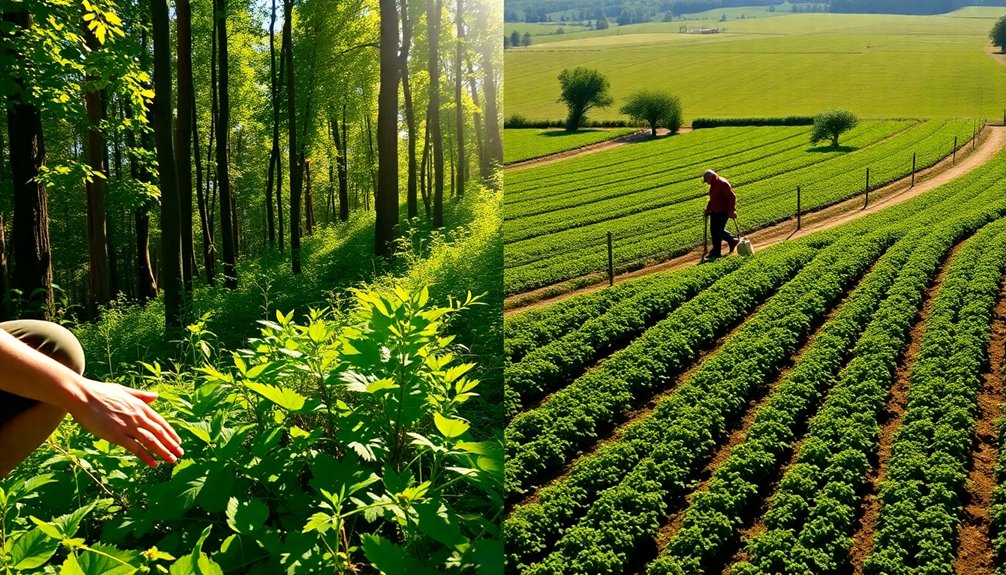
As societies evolved from foraging to farming, their lifestyles and leisure activities changed dramatically. Hunter-gatherers enjoyed a balanced life, spending only 12-19 hours a week obtaining food. This left ample leisure time for cultural and technological pursuits, enhancing community well-being.
In contrast, agricultural societies often required longer hours of labor, leading to reduced leisure opportunities and increased stress.
- Hunter-gatherers had fluid schedules, promoting leisure and creativity.
- Farming necessitated structured work hours, limiting personal time.
- Health and stress levels were generally better among foragers.
- The shift to farming often degraded quality of life.
Critics argue that the demands of farming led to a decline in leisure time, impacting overall life satisfaction. Richard Lee observed that hunter-gatherer societies maintained a healthy balance, fostering a rich cultural environment.
On the other hand, agricultural practices imposed constraints on leisure, often resulting in a more monotonous lifestyle.
So, while farming brought about advancements in food production, it came at the cost of diminished leisure, challenging the notion that a sedentary lifestyle is inherently better.
Ultimately, the quality and quantity of leisure time play an essential role in shaping one's lifestyle and well-being.
Technological Innovations Through Agriculture
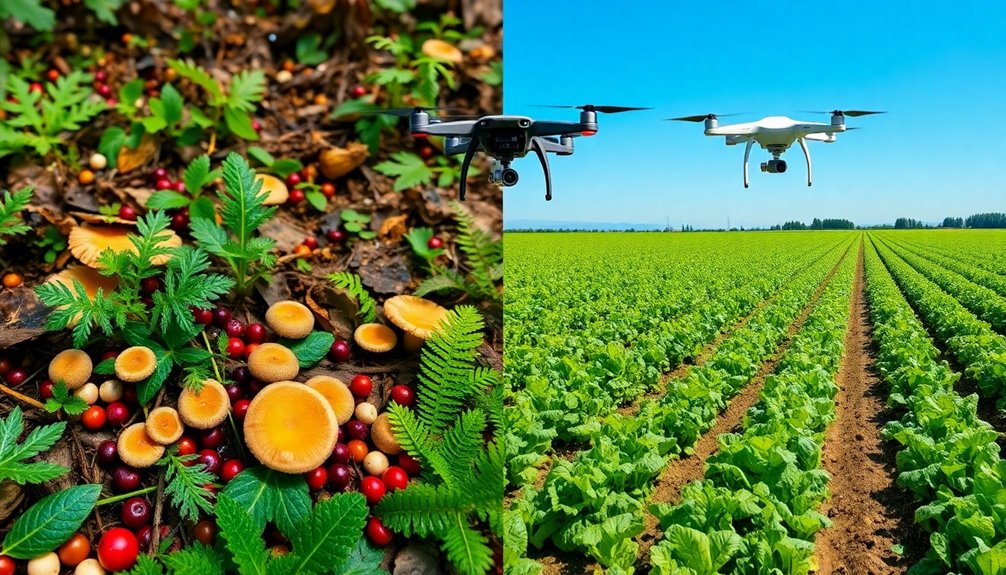
Agriculture brought about significant advancements that transformed societies, from irrigation systems to the plow, boosting efficiency and population growth.
However, this reliance on crop production also created vulnerabilities, as seen in historical instances where crop failures led to societal collapse.
Understanding these dynamics helps you appreciate the dual-edged nature of agricultural innovations.
Agricultural Advancements and Society
Throughout history, advancements in agricultural practices have played an essential role in shaping societies. You mightn't realize it, but these innovations have dramatically transformed human life:
- Permanent settlements emerged, fostering larger populations.
- Specialization of labor led to new technological innovations.
- Surpluses enabled cultural and artistic advancements.
- Trade networks flourished, connecting diverse communities.
Agricultural advancements, like the plow and irrigation systems, have revolutionized how you cultivate land. These technologies increased efficiency and allowed societies to produce more food than ever before, which, in turn, supported growing populations. The integration of energy-efficient systems in agricultural practices further enhances productivity and sustainability. Additionally, the use of commercial grade heat pumps in agricultural settings can significantly reduce energy costs and improve climate control. Moreover, the adoption of hydrogen fuel cells in modern farming can provide a cleaner energy source for agricultural operations. Furthermore, the integration of renewable energy sources can help to power farming equipment sustainably, reducing overall reliance on fossil fuels.
As people settled down, they began to develop complex civilizations, rich cultures, and sophisticated economic systems. The interplay between agriculture and technology has been vital in shaping not just how you farm but also how you live. In this context, the greatest happiness principle – a concept advocated by utilitarian thinkers – emphasizes the importance of actions that maximize overall well-being, mirroring the societal benefits derived from agricultural advancements.
However, it's worth noting that these advancements come with trade-offs. Critics argue that relying heavily on agriculture can make societies vulnerable to food shortages and potential collapse.
Still, the overall impact of agricultural advancements on societal structures can't be understated, as they've laid the foundation for the modern world we live in today.
Vulnerabilities of Crop Dependency
While crop dependency can boost yields and support growing populations, it also exposes agricultural societies to significant vulnerabilities. Relying heavily on single crops can lead to catastrophic failures during droughts or pest infestations, as history has shown with events like the Irish Potato Famine.
Monoculture farming practices increased yields but at the cost of biodiversity, leaving crops more susceptible to diseases that can decimate entire harvests. Furthermore, the loss of biodiversity can disrupt ecosystem services essential for agriculture, compounding the risks faced by farming communities. The refrigeration cycle in heat pump technology demonstrates how reliance on a single method can similarly increase vulnerability to environmental changes. To address these challenges, open communication about emotional expression can support farming communities in coping with stressors related to crop dependency.
Technological innovations, such as irrigation systems and genetically modified organisms (GMOs), were developed to combat these vulnerabilities. However, they introduce new challenges, including environmental concerns and questions about food security.
You might find that the dependency on technology also creates economic vulnerabilities, making it tough for smallholder farmers to compete against large agribusinesses that dominate the market.
Moreover, this reliance on agricultural innovations often leads to a loss of traditional knowledge and practices within communities. As a result, your resilience in facing changing environmental conditions diminishes. The long-term economic costs of such dependencies can outweigh the short-term benefits gained from increased efficiency and productivity.
Ultimately, while advancements in agriculture may seem beneficial, the vulnerabilities tied to crop dependency pose significant risks that can threaten the sustainability of agricultural societies. Additionally, regular maintenance of heat pumps can significantly enhance energy efficiency, paralleling the need for sustainable practices within agricultural systems.
Long-term Consequences of Agricultural Practices
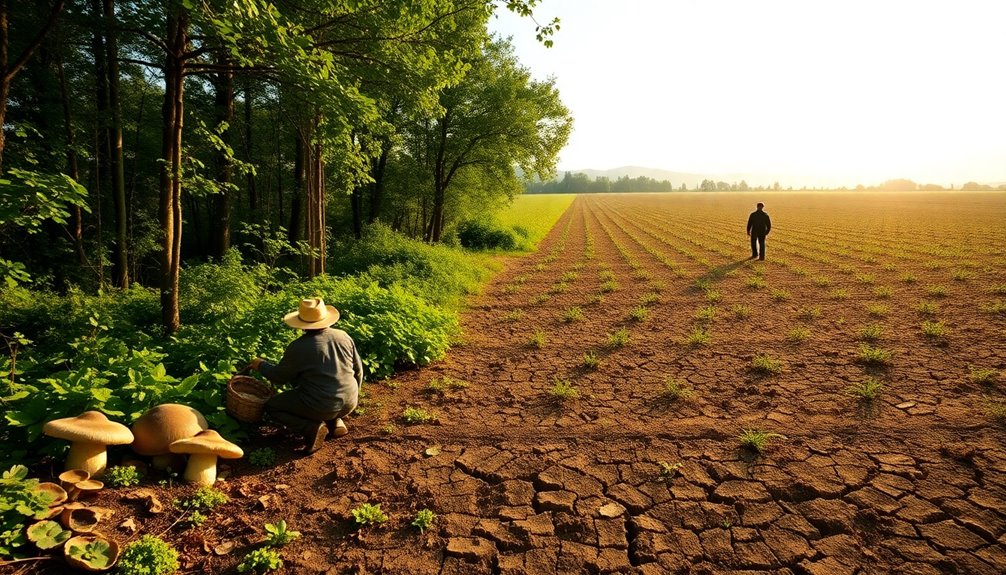
As societies shifted to farming, they faced a mix of opportunities and challenges that have shaped their futures. While agriculture allowed for increased population densities and the rise of civilizations, it also introduced significant long-term consequences that you can't overlook.
Consider these key points:
- Health Declines: Early farming societies showed increased malnutrition and chronic diseases.
- Social Inequality: Agricultural practices often led to class distinctions based on food surplus control.
- Vulnerability to Crises: Dependence on single crops heightened the risk of food shortages and societal collapse.
- Gender Inequality: Agricultural societies often placed men in superior roles, reinforcing rigid social hierarchies.
These consequences reveal how the shift from foraging to farming wasn't all beneficial. The reliance on agriculture created an environment where social inequality and health issues flourished. Additionally, the importance of planning ahead for future generations is a critical consideration that echoes the long-term consequences of these early agricultural choices.
Furthermore, the vulnerabilities linked to crop dependency laid the groundwork for contemporary challenges of poverty and inequality. As you reflect on these long-term consequences, it's crucial to recognize how they continue to influence societies today, reminding us that the choices of the past echo through time.
Foraging as Cultural Resistance
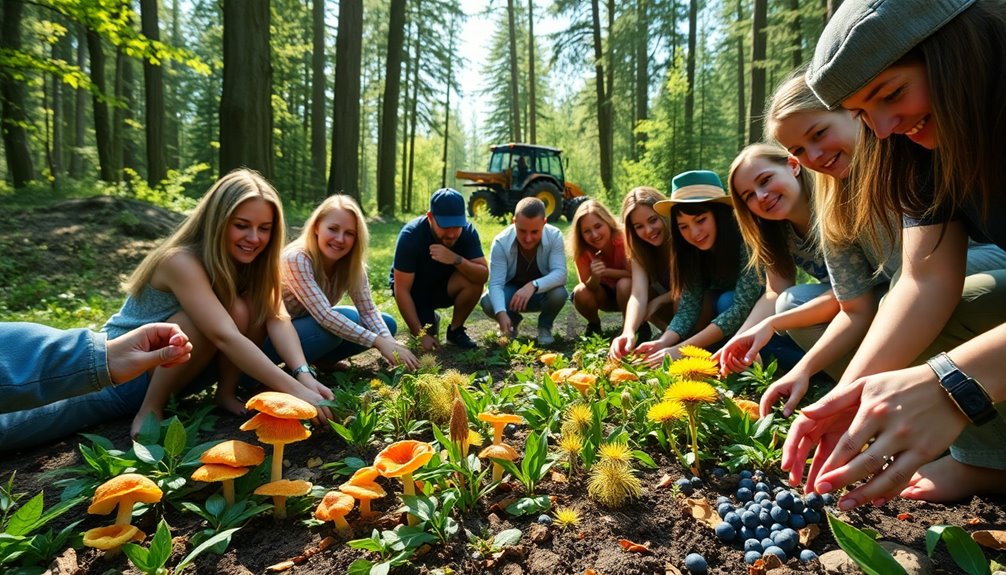
Embracing traditional foraging practices, Palestinians assert their identity and resist colonial pressures in contested landscapes. Foraging isn't just about gathering food; it serves as a powerful act of defiance against oppressive laws and practices that threaten their existence.
As you harvest wild zaatar and akkoub, you're not only connecting with your cultural roots but also claiming your right to the land.
Every time you forage, you're participating in a dialogue about land ownership and local authority, pushing back against settler-colonial dynamics that seek to erase your presence. This act intertwines daily survival with cultural expression, reminding you of the importance of environmental rights amidst ongoing struggles for dignity.
Foraging becomes a crucial means of maintaining your cultural heritage, a way to sustain traditional knowledge and practices that have endured through generations. You're not just gathering food; you're nurturing a sense of community and resilience.
In this context, foraging reflects a broader commitment to environmental stewardship, reinforcing the connection between the land, its resources, and your identity as a Palestinian. Through foraging, you embody resistance and celebrate your heritage, asserting your rightful place in the world.
Modern Implications of Dietary Choices
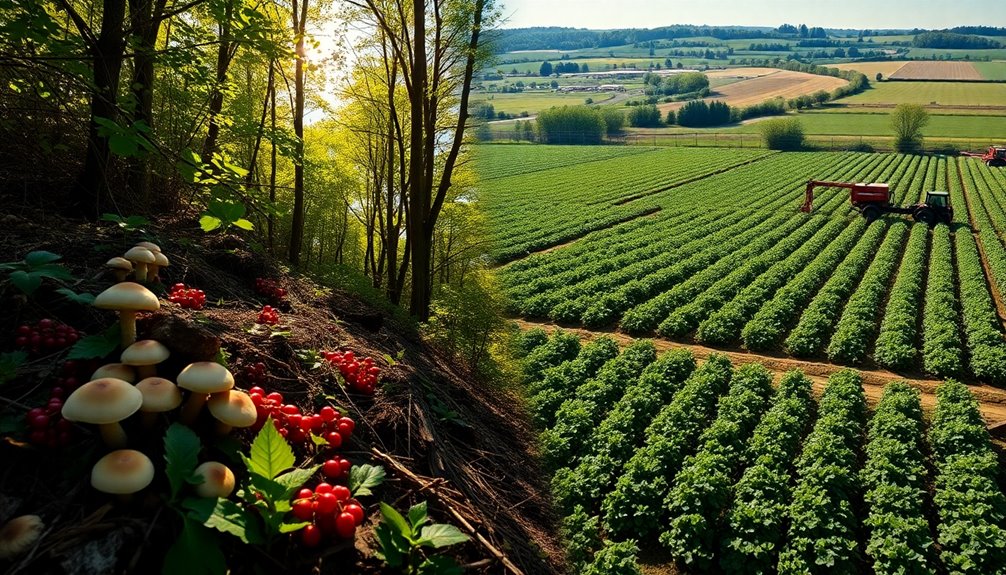
The modern implications of dietary choices reveal a stark contrast between foraging and farming practices, particularly regarding health outcomes. As you consider your own diet, it's crucial to reflect on how these choices impact your well-being.
- Hunter-gatherers have a more diverse diet, reducing risks of chronic diseases.
- Studies show lower rates of chronic ailments among foragers, indicating better health.
- Agricultural diets can lead to malnutrition and health deficiencies. Additionally, foragers often consume foods rich in antioxidants that combat oxidative stress and promote overall health. For example, the high levels of omega-3 fatty acids found in certain foraged foods contribute positively to heart health. Moreover, incorporating chia seeds into modern diets can provide similar health benefits, supporting weight management and overall wellness. The presence of nutrient-dense foods in foraged diets also supports greater overall vitality.
- Rethinking ancestral diets may offer solutions for contemporary food security.
While farming has revolutionized food production, it often comes at the cost of nutritional value.
Hunter-gatherers typically consume a varied diet that supports their overall health, with skeletal evidence showing fewer modern ailments.
In contrast, agricultural practices have been linked to a rise in health issues, such as dental problems and weaker bones.
Additionally, the consumption of antioxidant-rich foods may provide further health benefits not typically found in traditional agricultural diets. The incorporation of seeds like chia and flax into diets can enhance nutrient intake and provide sustained energy.
Frequently Asked Questions
What Was Better, Farming or Foraging?
When you consider whether farming or foraging was better, you'll find both lifestyles have their merits.
Foraging offered a diverse diet and less time spent hunting for food, allowing for cultural growth and egalitarian structures.
On the other hand, farming provided the stability of permanent settlements and population growth.
Yet, it often led to social hierarchies and health issues.
Ultimately, what's "better" might depend on individual values and priorities.
Why Were Foragers Healthier Than Farmers?
Imagine roaming lush forests and open fields, gathering vibrant fruits and hunting game.
Foragers thrived on a diverse diet that kept them healthy, avoiding chronic diseases like diabetes. Their varied intake provided essential nutrients, unlike early farmers who relied on limited crops.
This led to weaker bones and dental issues. So, as you picture the hunter-gatherer's life, remember how their active lifestyle and nutritional richness contributed to their overall well-being compared to sedentary farmers.
Why Did Humans Stop Foraging and Start Farming?
Humans shifted from foraging to farming mainly due to environmental changes and population pressures. As resources became scarcer, you needed a more reliable food source.
Farming allowed you to settle and cultivate crops, supporting larger communities. While it seemed advantageous, this change often led to social inequalities and health issues.
You might've traded a diverse diet for a more stable food supply, but it came with vulnerabilities that foragers didn't face.
Why Was Hunting Better Than Farming?
Hunting was often better than farming because it provided a diverse diet, reducing the risk of chronic diseases.
You'd enjoy better health, with stronger bones and fewer dental issues.
Plus, hunter-gatherers spent only 12-19 hours a week on food acquisition, giving you more leisure time for cultural and technological pursuits.
Unlike farming, which created social hierarchies and made communities vulnerable to food shortages, hunting allowed for greater equality and resilience.
Conclusion
In the end, whether foraging is better than farming really depends on your values and lifestyle. Each approach has its pros and cons, shaping our health, social structures, and even our culture. As you weigh your options, remember that one size doesn't fit all; it's about finding what works for you. Embracing the best of both worlds might just be the key to a balanced life, allowing you to reap the benefits without losing touch with nature.

